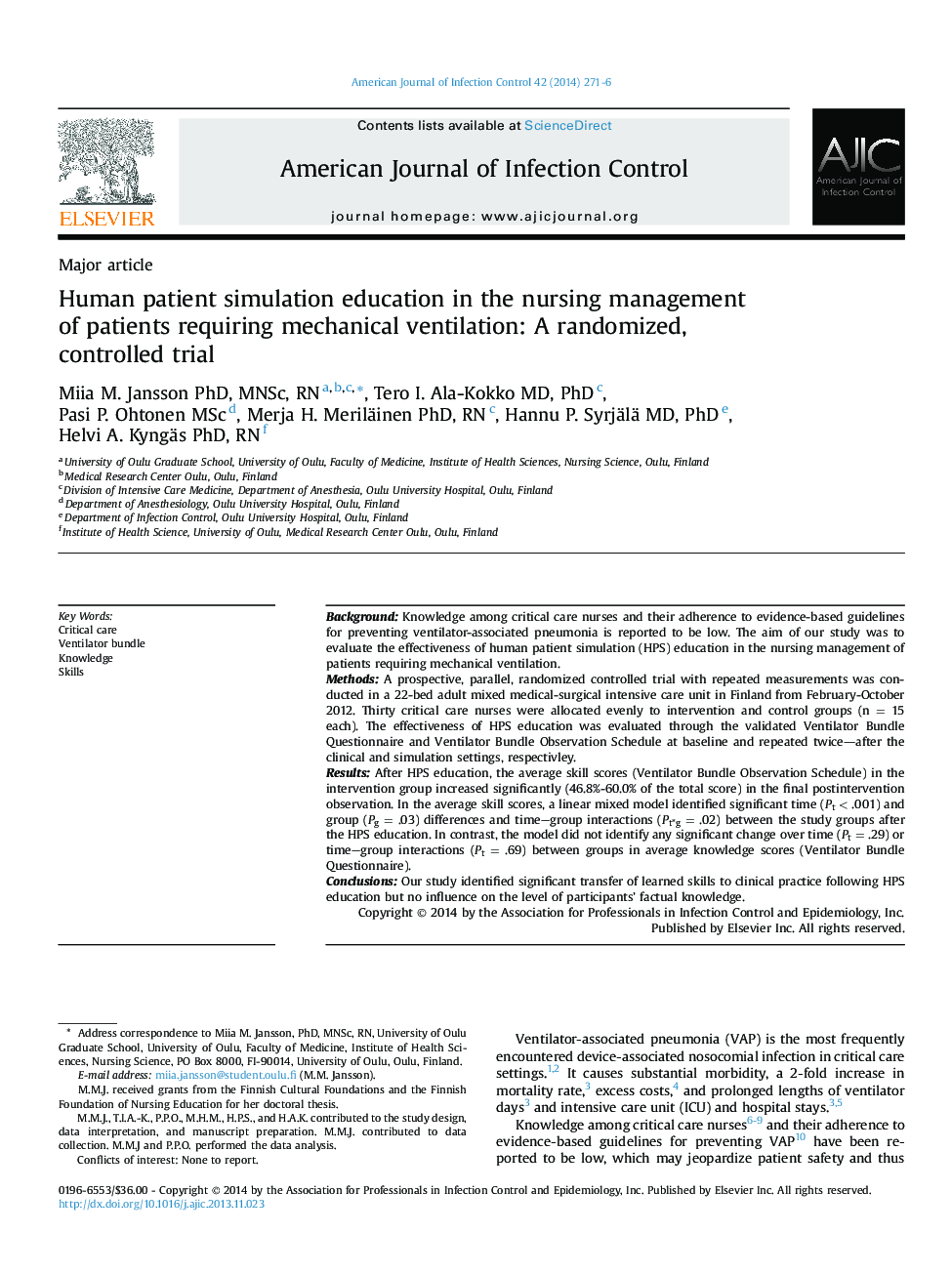| Article ID | Journal | Published Year | Pages | File Type |
|---|---|---|---|---|
| 2637661 | American Journal of Infection Control | 2014 | 6 Pages |
BackgroundKnowledge among critical care nurses and their adherence to evidence-based guidelines for preventing ventilator-associated pneumonia is reported to be low. The aim of our study was to evaluate the effectiveness of human patient simulation (HPS) education in the nursing management of patients requiring mechanical ventilation.MethodsA prospective, parallel, randomized controlled trial with repeated measurements was conducted in a 22-bed adult mixed medical-surgical intensive care unit in Finland from February-October 2012. Thirty critical care nurses were allocated evenly to intervention and control groups (n = 15 each). The effectiveness of HPS education was evaluated through the validated Ventilator Bundle Questionnaire and Ventilator Bundle Observation Schedule at baseline and repeated twice—after the clinical and simulation settings, respectivley.ResultsAfter HPS education, the average skill scores (Ventilator Bundle Observation Schedule) in the intervention group increased significantly (46.8%-60.0% of the total score) in the final postintervention observation. In the average skill scores, a linear mixed model identified significant time (Pt < .001) and group (Pg = .03) differences and time–group interactions (Pt*g = .02) between the study groups after the HPS education. In contrast, the model did not identify any significant change over time (Pt = .29) or time–group interactions (Pt = .69) between groups in average knowledge scores (Ventilator Bundle Questionnaire).ConclusionsOur study identified significant transfer of learned skills to clinical practice following HPS education but no influence on the level of participants’ factual knowledge.
